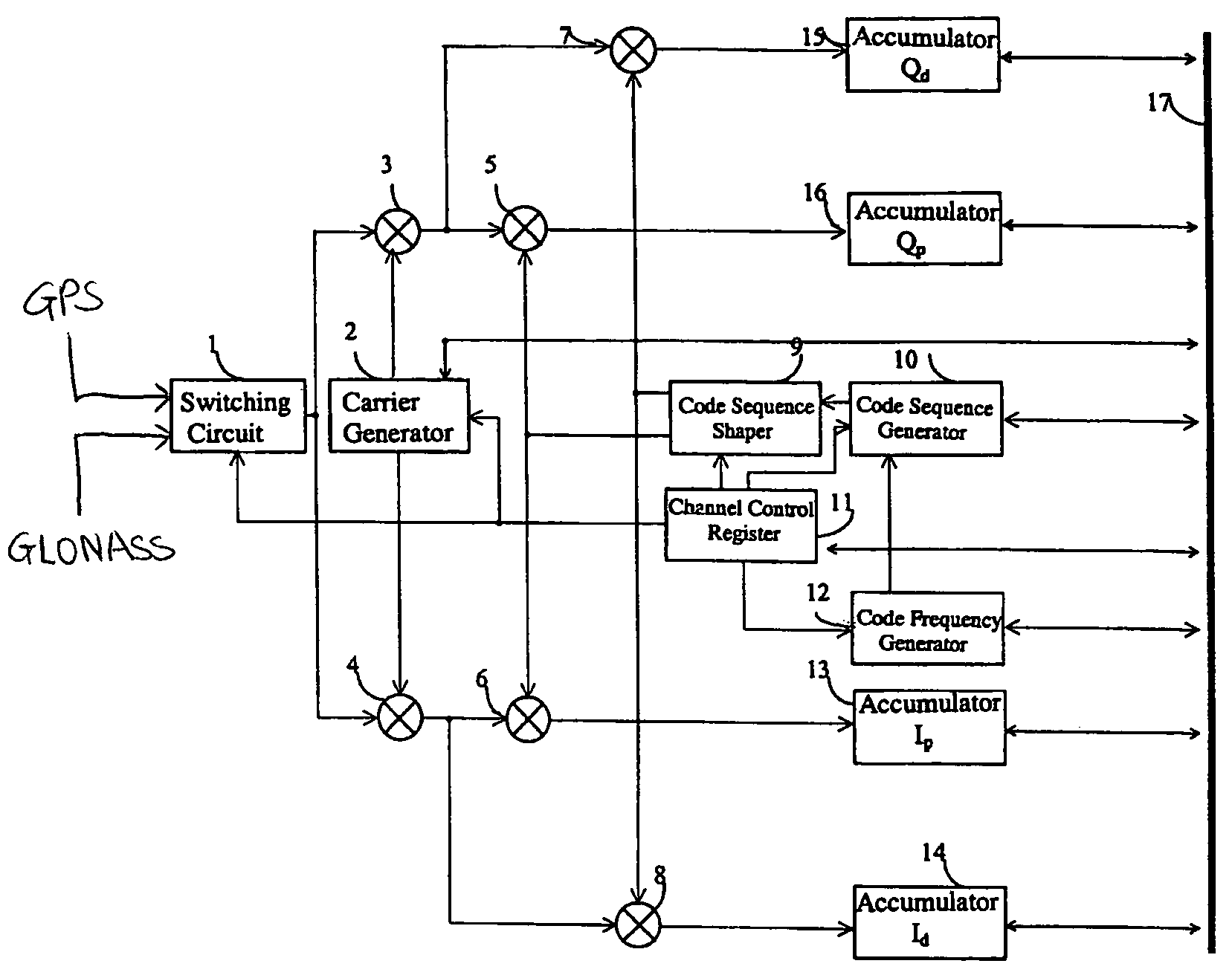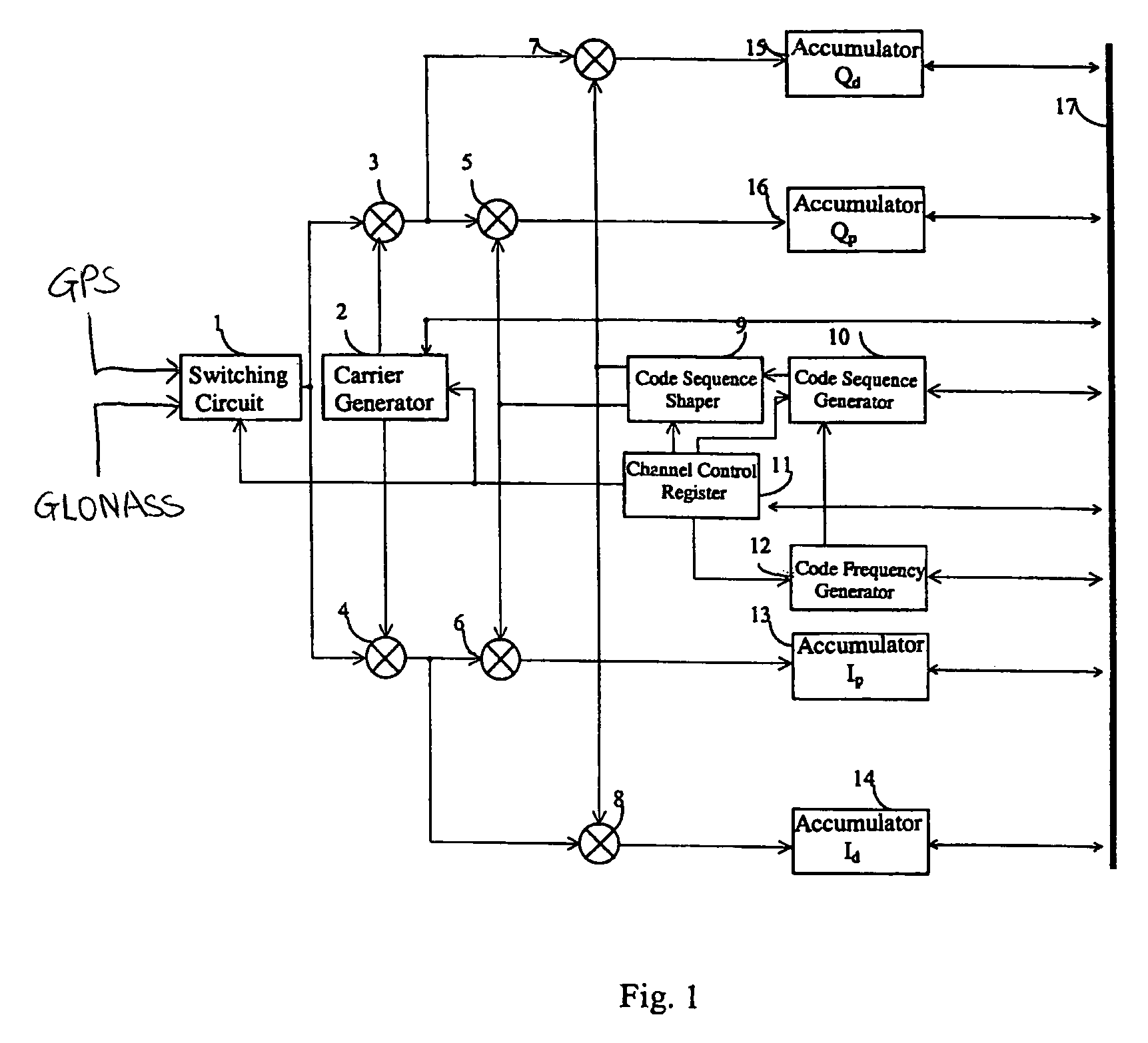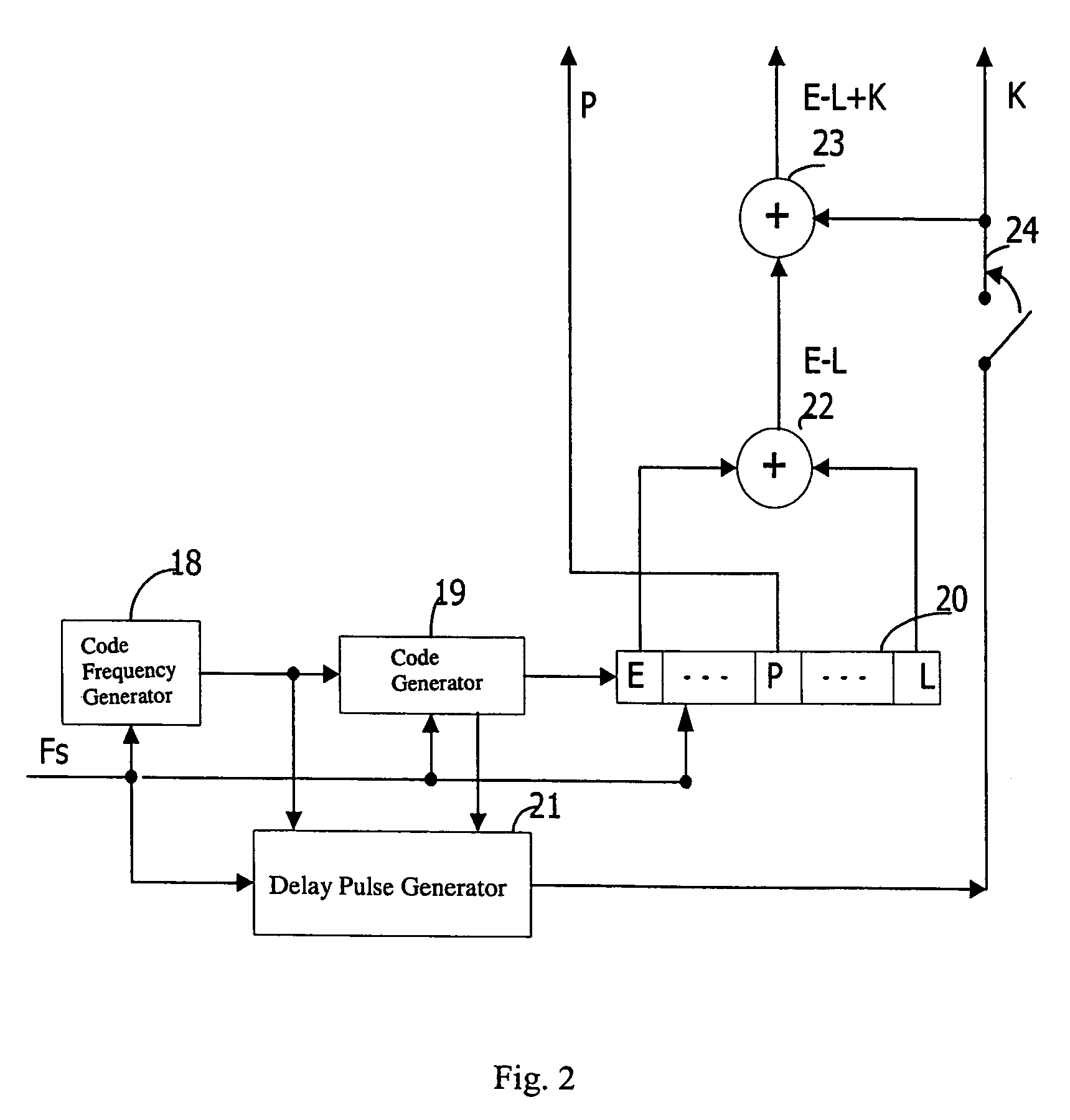Method of increasing noise immunity during reception of signals from satellite navigational systems
a satellite navigational system and noise immunity technology, applied in the field of digital radio signal system reception, can solve the problems of low accuracy of receiver characteristics, distortion of signal parameters, multipath effect, etc., and achieve the effect of reducing the negative influence of noise level and avoiding distortion
- Summary
- Abstract
- Description
- Claims
- Application Information
AI Technical Summary
Benefits of technology
Problems solved by technology
Method used
Image
Examples
Embodiment Construction
[0020]FIG. 1 shows a block diagram of the typical signal of the correlator used for tracing the frequency (phase) and code of the receiver of the GPS or GLONASS system or the combined GPS / GLONASS system. The figure represents a universal GPS / GLONASS correlator operating with an actual input signal after an analog-to-digital converter. Nevertheless, the offered approach is completely applicable to the case of operation with a pair of quadrature input signals (input in-phase component I and quadrature component Q of the signal). Usually a receiver has some single-type tracing channels to monitor the signals of several satellites simultaneously. Since this feature does not reflect the essence of the proposed invention, no detailed description of the radio engineering part of the digital receiver is given here. Such a system, as a rule, consists of a low-noise input amplifier, a high-frequency bandeaus filter, a mixer (or mixers) reducing the frequency which include a voltage-controlled...
PUM
 Login to View More
Login to View More Abstract
Description
Claims
Application Information
 Login to View More
Login to View More - R&D
- Intellectual Property
- Life Sciences
- Materials
- Tech Scout
- Unparalleled Data Quality
- Higher Quality Content
- 60% Fewer Hallucinations
Browse by: Latest US Patents, China's latest patents, Technical Efficacy Thesaurus, Application Domain, Technology Topic, Popular Technical Reports.
© 2025 PatSnap. All rights reserved.Legal|Privacy policy|Modern Slavery Act Transparency Statement|Sitemap|About US| Contact US: help@patsnap.com



